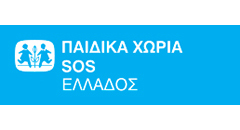Children belong in families. Our National Strategic Proposition includes:
• Creating and upholding a national institutional framework for quality care in institutions, which guarantees the protection of the rights of the children and effectively promotes family placements for all children
• A clear National plan for De-Institutionalization: the gradual transition from institutional care to quality alternative care
• The creation and enhancement of Family Strengthening prevention programs
• Amending the Foster Care Law (2018) with important enhancements, such as expanding Public-Private initiatives and collaborations with experienced and qualified organizations; adopting a multidisciplinary approach in the social research process for prospective parents and the support and training of foster care parents; and expanding professional foster care for all children.
• The creation of semi-autonomous living Leaving Care programs for children on their way to adulthood and independence
We need a national legal framework which ensures that adequate quality standards are upheld – including the number of qualified staff, the existence of an operational framework based on pedagogical standards, volunteer management, building capacity standards, as well as the promotion of family placements for all children.
We suggest the adoption of the Quality4Children standards as a prerequisite for certification. SOS Children’s Villages International developed the Quality4Children project in collaboration with the International Foster Care Organization (IFCO) and the International Federation of Educative Communities (FICE), with the participation of 32 European Countries and the aim to improve conditions for children and young people living in alternative care, as well as to ensure that their rights are upheld and their best interests are met.
In Europe, de-institutionalization – the gradual replacement of institutional care with quality alternative care programs for children – has become not only best, but common practice.
Best practice in childcare1 dictates the child’s placement in a family environment. In cases where this is not immediately possible, the child’s best interest is served with a short-term stay in a family-based care environment, before rehabilitation, the soonest possible, in a family through foster care, adoption or supported return to his or her biological family. Babies and small children under 3 should always be placed in a family immediately.
Family-based care structures are small homes with 5-6 children which employ adequate and qualified staff (carer, psychologist, social worker), ensure the existence of standard care providers and personalized developmental plans for the children, and which are placed within the community to ensure the children’s socialization needs are adequately met.
The child’s placement in a family through adoption, foster care or reunification with the biological family is a complex process on many levels, including the parents’ evaluation and preparation process, the appropriate matching with the child, as well as the support and evaluation of the family placement. We need strict guidelines, proper and adequate training, and qualified staff to ensure a family placement is successful.
1 Resolution adopted by the UN General Assembly 64/142, Guidelines for the Alternative Care of Children, 2009
Family Strengthening programs are proven to be critical in the prevention of family separation. In Europe, over 92% of cases of children outside parental care are caused by abuse and neglect or social reasons – in all of those cases, appropriate multidisciplinary social care structures can and should play a critical role1. A vulnerable family is proven to run heightened risks of family separation and abuse.
1Browne, The Risk of Harm to Children in Institutional Care, 2009
The need for a care network to support young persons reaching adulthood, as well as the setup of individual personalized support plans for life after 18, is necessary.

